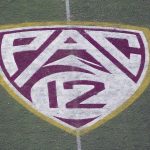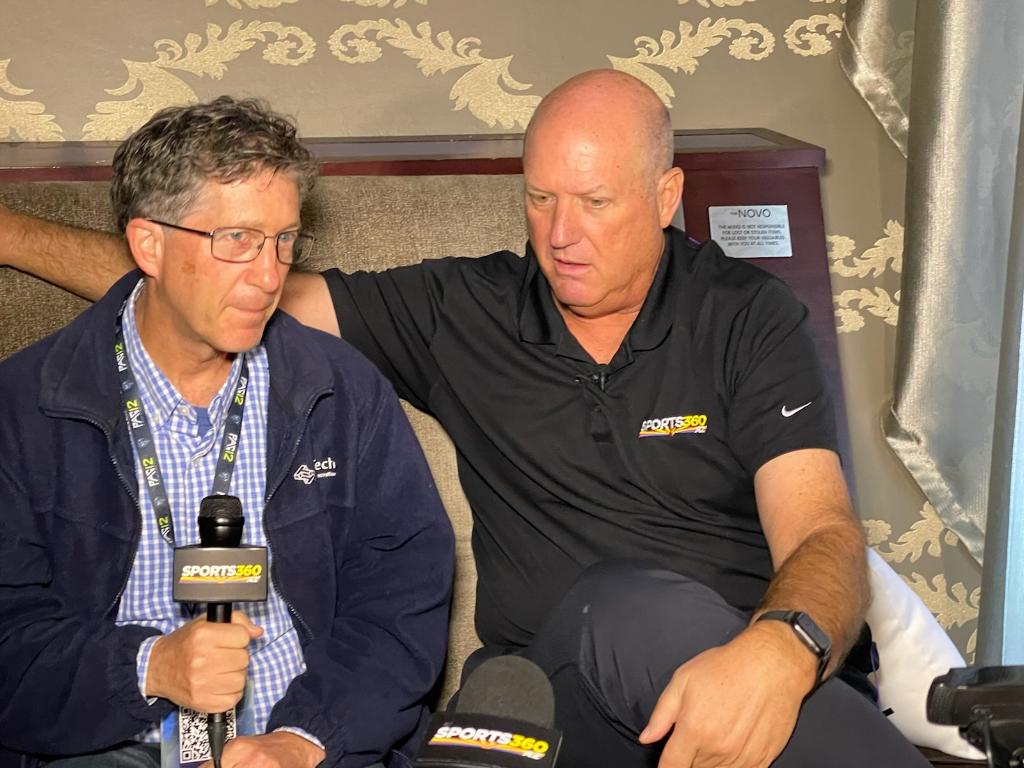Four days after the news, clarity has come to the financial imbroglio that cost two Pac-12 executives their jobs and placed the conference at financial risk with a major Pac-12 Networks distribution partner.
We know the distribution partner in question is Comcast.
We know Comcast filed a claim in October stating it overpaid the networks by a total of more than $50 million over a number of years.
We know two executives, CFO Brent Willman and Pac-12 Networks president Mark Shuken, have been fired for failing to “disclose material information … in connection with overpayments,” according to the Pac-12.
And we know former commissioner Larry Scott has been interviewed.
Many key details are missing, known only to the conference and those involved.
But thanks to information provided by Hotline sources with knowledge of the situation — none of them are employed by the conference office or the schools — we can offer a rough framework of events and answer several outstanding questions.
What prompted the 2017 audit, performed on the Pac-12’s behalf, that revealed the overpayments?
Why didn’t the Pac-12 stop the overpayments given the ongoing financial risk they created?
Why did Comcast continue paying more than it should have?
Were the executives involved attempting to inflate Pac-12 Networks revenue, either to make the business appear more successful than it was or to trigger performance bonuses?
The full story might never become public, but multiple sources offered the same assessment of the terminated executives, Willman and Shuken: There was no malice involved in their handling of the situation.
“They were not willfully hiding money,” one source said.
From the Hotline’s perspective, this is a clear case of mismanagement. By whom? That’s where it gets murky.
In the spring of 2017, the Pac-12 Networks asked an outside auditing firm — a firm described by the Pac-12 as an industry leader — to examine the payments Comcast was making to the Pac-12 Networks.
This is not an unusual step in the media distribution business. Companies regularly seek audits to make sure monthly or annual payments are accurate.
And Pac-12 Networks executives did not think Comcast’s payments were accurate, according to sources. They thought Comcast was underpaying.
They were surprised by the audit’s conclusion that Comcast was, in fact, paying too much.
“Nobody thought it was credible,” one source said.
“There was disbelief,’” the other source said.
How much was too much? About $5 million annually, according to sources.
The results of the audit were made known to Shuken and Willman in December 2017.
At that point, the logical step would have been to cross-check the audit results with the Pac-12’s internal data and examine invoices sent to Comcast for the year in question (2016).
Except the Pac-12 had none of that, because Comcast didn’t share its subscriber data. The situation wasn’t unusual in the media distribution business.
“You have to take the distributor at their word,” one source said. “You don’t know what their (subscriber) data is. And if the payments seem light, you ask for an audit.”
“The situation wasn’t built on something the Pac-12 could check,” the second source said, “because the payments were being made based on Comcast’s internal data. They couldn’t correct it, because it was all on Comcast.”
The only way to gain visibility into the accuracy of payments is to request an audit. It’s standard practice in the media distribution game.
Sources believe Comcast was double-paying the Pac-12 for a portion of its subscriber base — likely for the customers who received both the Pac-12 Networks’ national feed and one of the regional feeds.
What did Shuken and Willman do next?
Did they tell Scott, who was not only the conference commissioner but also the chief executive of the Pac-12 Networks?
Did they tell Woodie Dixon, the Pac-12’s chief legal officer and senior vice president for business affairs?
It’s logical to conclude that Shuken, who reported directly to Scott, would have told the commissioner — and perhaps Dixon, as well.
Or, as multiple sources wondered: What motivation did Shuken and Willman have to keep the issue from Scott?
Neither executive benefited personally from the overpayments. The amount ($5 million) likely wasn’t enough to boost Pac-12 Networks revenue into a threshold that would trigger performance bonuses for either of them.
Also, Shuken had been on the job for just three months. The overpayments weren’t his responsibility — they were from the year before he was hired. He had nothing to hide.
Scott declined an interview request, and the Pac-12 hasn’t offered comment on the involvement of any specific individuals. (It did not even identify Shuken and Willman in the public statement issued last week.)
Exactly what happened next is unclear. But the Pac-12’s Board of Directors (the university presidents) was never told — not by Scott, who reported directly to them, or by Shuken or Willman, who were fired for failing to “disclose material information to the Pac-12 Board of Directors and external Pac-12 auditors in connection with overpayments.”
(This much we know: Had information about the overpayments leaked, it would have added to the public perception of the Pac-12 Networks as an underperforming business.)
Meanwhile, executives remained miffed at the results of the audit and convinced that Comcast was, in fact, underpaying the Pac-12, according to sources.
Because the Pac-12 commissioned the audit and Comcast was solely responsible for the payment amount based on its proprietary subscriber data, a source said, the Pac-12 was not obligated to act on the results.
“They thought, ‘That can’t be right,’” a source said. “The results were so different than what they expected that they didn’t close the audit. So Comcast was never informed.”
And the overpayments continued — by about $5 million annually, according to one of the sources.
That amount makes sense in this respect: There have been 10 fiscal years since the launch of the Pac-12 Networks.
If Comcast, a founding partner, overpaid the Pac-12 by about $5 million annually for 10 years, that’s $50 million — the amount cited in the claim filed by Comcast in October.
(That claim prompted the Pac-12 to investigate the matter with the use of an outside firm, Cooley LLP.)
Had the Pac-12 not commissioned the audit in the spring of 2017, then Comcast would have continued making the overpayments and the conference would have been dumbstruck when Comcast came forward with the claim.
At what point did Comcast discover the overpayments? How did it make the determination?
Both details remain unclear.
The amount in annual overpayments constituted about four percent of the Pac-12 Networks’ annual revenue at the time of the audit and approximately one percent of the conference’s total revenue.
Sources believe the company will simply withhold payments totaling $50 million (approximately) over the remaining two years of the carriage contract — about $2 million per school per year.
And more details will undoubtedly surface.
But for now, we know the combination of Comcast’s error (based on proprietary data), an audit ordered by the Pac-12 (to ensure proper payment) and the passage of time resulted in two terminations and a bill that’s just coming due.
*** Send suggestions, comments and tips (confidentiality guaranteed) to pac12hotline@bayareanewsgroup.com or call 408-920-5716
*** Follow me on Twitter: @WilnerHotline
*** Pac-12 Hotline is not endorsed or sponsored by the Pac-12 Conference, and the views expressed herein do not necessarily reflect the views of the Conference.
Related posts:

(AP Photo/Ralph Freso, File)
Huffman – Pac-12 recruiting update: Fallout at ASU, big wins by Washington and Oregon, and a huge opportunity this week for Oregon State
(AP Photo/Ralph Freso, File)
Saturday Night Five: CFP path narrows as UCLA tumbles, why USC is the best bet, OSU’s success and Stanford’s upturn The Pac-12 top 10: Key news developments from the week include Dickert’s deal, Pac-12 Network future, coaches contract lined up , more
The Pac-12 top 10: Key news developments from the week include Dickert’s deal, Pac-12 Network future, coaches contract lined up , more
 Wilner: Merger with the ACC (now or later), the Pac-12’s radio silence, Friday on Amazon, Boise State’s future as the MW waits
Wilner: Merger with the ACC (now or later), the Pac-12’s radio silence, Friday on Amazon, Boise State’s future as the MW waits
Jon Wilner
Jon Wilner has been covering college sports for decades and is an AP top-25 football and basketball voter as well as a Heisman Trophy voter. He was named Beat Writer of the Year in 2013 by the Football Writers Association of America for his coverage of the Pac-12, won first place for feature writing in 2016 in the Associated Press Sports Editors writing contest and is a five-time APSE honoree.
